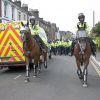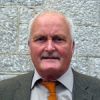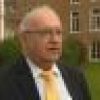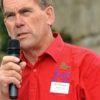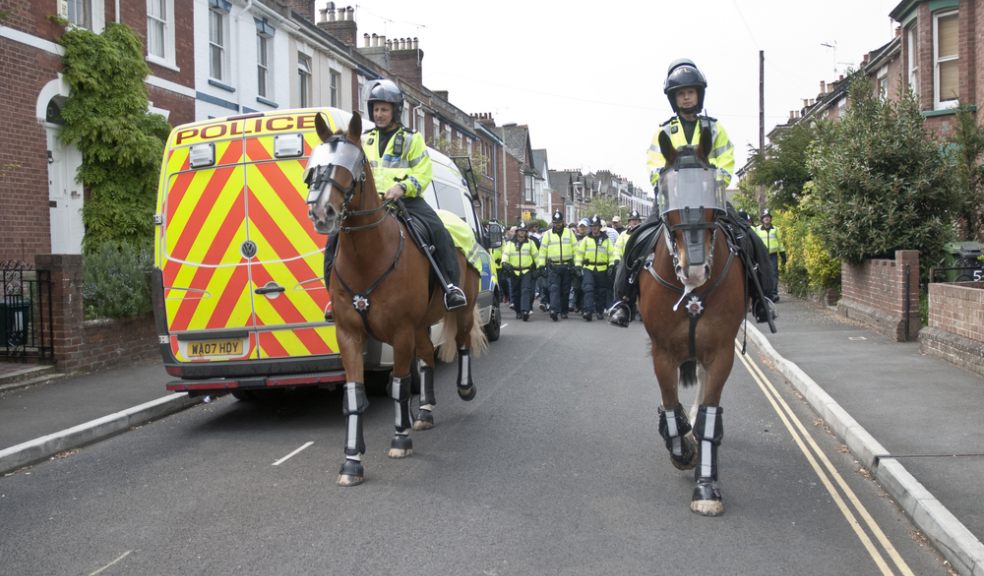
19 days to go until the Police and Crime Commissioner Elections
On 15 November, 37 police and crime commissioners will be elected in England along with four in Wales.
The PCCs, as they will be known, will be tasked with scrutinising their force and holding it to account. They will also set the budget, and hire and fire chief constables. The commissioners will be paid and are supposed to empower local people into having a say on how crime is tackled.
The candidates for Devon and Cornwall are (in alphabetical order)...
BRIAN BLAKE - Liberal Democrats
Brian Blake served with the Devon and Cornwall force for 30 years.
He is a former Devon and Cornwall Police officer who served with the force for 30 years before moving on to work at the Ministry of Defence for 13 years.He said he would put public safety first, but also wanted to show how community policing and restorative justice could be used to benefit everyone.
He added the Liberal Democrats' values on crime, justice and civil liberties would also be at the forefront of his campaign.
GRAHAM CALDERWOOD - Independent
Graham Calderwood has defended and prosecuted criminal cases.Graham Calderwood is a solicitor who has worked in the area of criminal law for more than 40 years.
He has been a duty solicitor for people arrested by police and has also been involved in prosecuting cases for the Crown Prosecution Service.
He said he knew the procedures and problems for both defence and prosecution sides of the law, and said his experience meant he knew how they could be improved.
BRIAN GREENSLADE - Independent
Brian Greenslade said the role of commissioner should not be political.The former Liberal Democrat leader of Devon County Council, the accountant Brian Greenslade is also a former chairman and a current member of the Devon and Cornwall Police Authority and has also served as chairman of the Association of Police Authorities.
He said he was standing because he felt he could bring a lot of relevant experience to the role and that he was standing as an independent candidate because he did not believe the post should be political.
TONY HOGG - Conservative
Tony Hogg said he wanted to deliver clear leadership. He is a retired sailor who spent more than 30 years in the Royal Navy.He served in the Falklands War and in the Gulf and was commanding officer of RNAS Culdrose in Cornwall, reaching the rank of commodore.
He said his main pledges included wanting to deliver clear leadership, to lift police morale, to increase visible policing with the public playing their part too and encouraging early intervention to turn around the lives of young people.
IVAN JORDAN - Independent
Ivan Jordan said his policies would be based on evidence not party politics.He is an architect and farmer who has lived in Devon and Cornwall for 20 years.
Mr Jordan said, if elected, his policies would be based on evidence not party politics.
He said his pledges included tackling hate crime, targeting aggressive and inconsiderate drivers, focusing resources on prevention rather than prosecution and protecting the force from privatisation.
TAM MACPHERSON - Independent
Tam Macpherson said he would look at establishing separate forces for Devon and Cornwall and said he hoped to lead and bring together concerned community groups to identify the causes and effects of crime in the community.The Plymouth-based candidate said he believed that police must connect at a local level, and the police service should not be permitted to become aligned with the priorities of a political party.
He also said that serious consideration should be given to establishing two separate services: one for Cornwall and the Isles of Scilly, and one for Devon.
WILLIAM MORRIS - Independent
William Morris said tackling social deprivation was a method of reducing crime. He is a former farmer from Cornwall and head of the Next Century Foundation - a charity which works in conflict resolution in the Middle East.He said he believed it was best if the post was independent of any political party "because policing is too important an issue to be consumed by party politics".
Morris also said more action was needed to tackle social deprivation as a method of reducing crime and added his action points would also include work to cut police bureaucracy.
BOB SMITH - UK Independence Party
Bob Smith said he supported a police force that was visible and responsive. He is a psychologist and lives outside Penzance in Cornwall.He said the post of commissioner should be held by a member of the community, not just a career politician, and that it was an exciting opportunity to develop an "effective and transparent partnership" between the police and the community.
Mr Smith said he supported a strong, visible and responsive police force.
JOHN SMITH - Independent
John Smith said he was standing "truly independent of all politics". Smith is a former member of the Devon and Cornwall Police Authority and a former Liberal Democrat county councillor.He was a member of the police authority from 2001 to 2009, serving as chairman and vice chairman and said he was standing as commissioner "truly independent of all politics" because "of all the things that we should not politicise, this is one".
He said his priorities included campaigning to have the force's budget increased, increasing regional inter-force co-operation to control expenditure and emphasising that, as police officers were also members of the community, the community should do more to help policing.
NICKY WILLIAMS - Labour
Nicky Williams said her top priority was protecting front-line policing. Williams is a Plymouth councillor for the city's Honicknowle ward and the city council's cabinet member for children's services.She has also worked for 13 years as a political adviser to several MPs and local councillors and said her top priority was protecting front-line policing and that she would listen to and work with communities to identify local solutions to local problems.
She said every community had different needs and the commissioner's role was to ensure such needs were recognised and acted upon "amidst a landscape of competing priorities and budget cuts".









